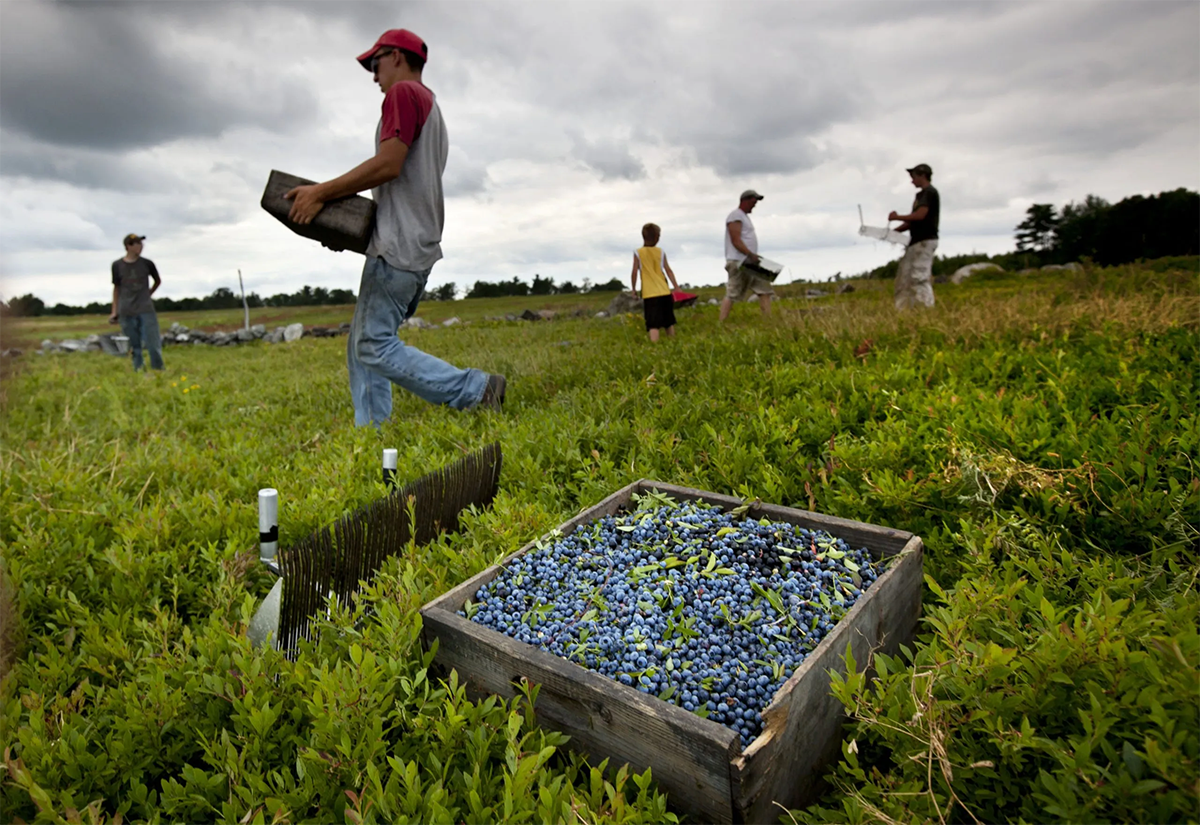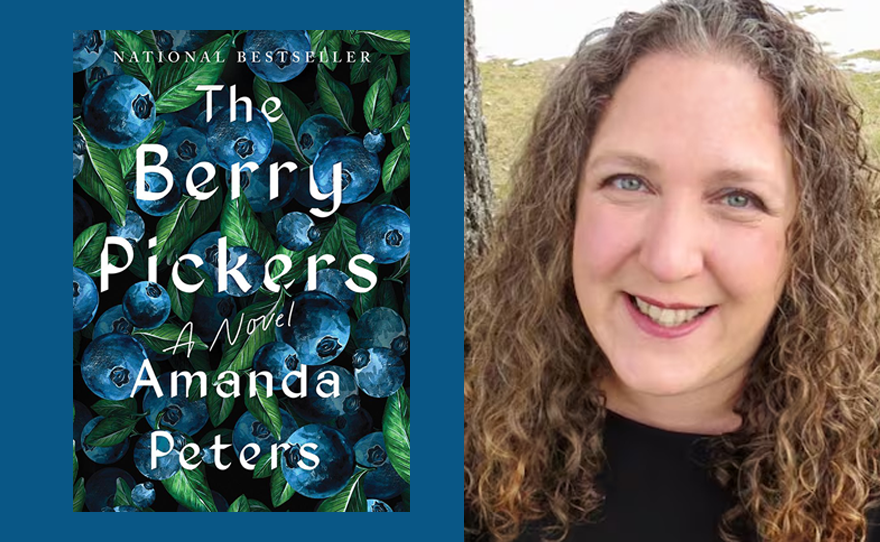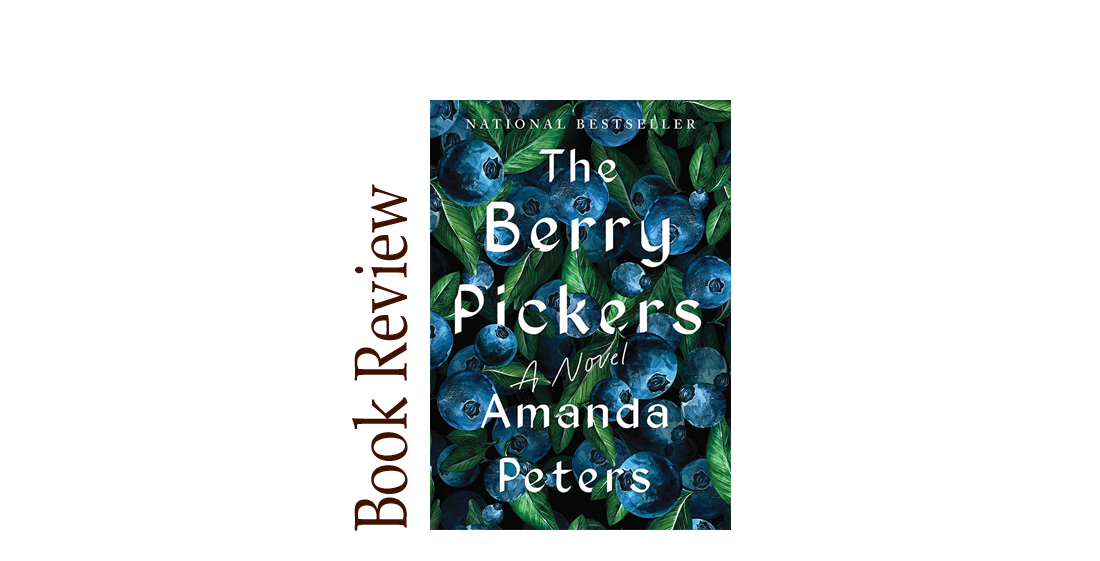- Date Published:
2023 - Length:
329 pages—Listening Time: 8 hrs 44 minutes - Genre:
Fiction, Mystery - Setting:
1960s—Present day, Nova Scotia and Maine - Awards:
Andrew Carnegie Medals for Excellence in Fiction and Nonfiction Winner Fiction 2024; Barnes & Noble Discover Great New Writers Award Winner 2023; Atwood Gibson Writers' Trust Fiction Prize Shortlist 2023; Amazon Canada First Novel Award Shortlist 2024; Crime Writers of Canada Awards of Excellence Winner First Novel 2024; Dartmouth Book Award for Fiction 2024; Booklist Editor's Choice Adult Books 2023; Amazon.com Best Books 2023; Christian Science Monitor Best Book Fiction 2023; Notable Lists
Chicago Public Library Best of the Best Adults Must-Read Books Fiction 2023 - Language:
English and Latin - Sensitive Aspects:
Indigenous family separation, racism and discrimination, trauma, grief, addiction, self-harm, cultural erasure, some violence - Movie:
There is currently no information available about any specific movie deals as of May 2025. - Recommend for Book Club:
Yes, this is a tender story that most book groups will enjoy

A few years back, I saw a TV commercial about a Canadian federal program that provided compensation for Indigenous people who attended federal Indian Day Schools when they were children. I envisioned that asbestos in the walls, contaminated water, or educational deficiencies had caused the government to pay out. So, I asked a few of my Canadian friends what the commercial was about. They explained the racial injustices facing Canadian Indigenous peoples. It was not a pretty description.
I always considered Canada to be a land of peace-loving, kind-hearted people who valued each other. I couldn't believe that a program like the one I saw would ever be necessary. I was so wrong.
The cultural erasure of Indigenous peoples in Canada is a deeply rooted and ongoing process, stemming from colonial policies and practices that aimed to assimilate, marginalize, and ultimately destroy the cultural foundations of First Nations, Inuit, and Métis communities. This erasure has been recognized as a form of cultural genocide by Canadian institutions and international bodies.
I was clueless that things like this occurred and continue to occur in Canada, and I didn't fully understand the extent of these atrocities until I read The Berry Pickers by Amanda Peters.
The Berry Pickers underscores the psychological toll of cultural erasure and the search for belonging among the First Nation's people. In the book, Peters, herself a member of the Glooscap First Nation, approaches these subjects with empathy and nuance, aiming to shed light on the personal and collective costs of historical injustices. The Berry Pickers is her debut novel.

The Berry Pickers is a powerful, emotionally resonant novel that explores the long-lasting effects of family separation, trauma, and identity through the intertwined lives of two characters over fifty years.
In the summer of 1962, a Mi’kmaq family from Nova Scotia travels to Maine as migrant workers to pick blueberries. Their youngest child, four-year-old Ruthie, vanishes from the fields, last seen by her six-year-old brother Joe. Due to the family's Indigenous and migrant status, local authorities provide minimal assistance during the desperate searches, yet Ruthie remains unfound. The loss devastates the family, especially Joe, who carries guilt and trauma into adulthood.

The narrative of the book alternates between two perspectives:
Joe: Haunted by his sister’s disappearance, Joe’s life is marked by grief, guilt, and the shadow of unresolved loss. As an adult, he struggles with addiction, anger, and a fractured sense of self and is later depicted as battling terminal cancer while reflecting on his family’s suffering and his failings.
Norma: Raised as the sole child of an affluent, overprotective couple in Maine, Norma struggles with dreams and fragmented memories that she finds inexplicable. As she grows up, she senses her parents are hiding something about her origins. After her parents' deaths, she uncovers clues that force her to confront the truth about her identity.
The novel examines the bonds of family, the pain of separation, and the search for belonging. Norma’s journey is one of self-discovery, while Joe’s is one of seeking closure and forgiveness.
Peters describes how a single traumatic event reverberates through generations, affecting not only those who experienced it directly but also those who inherit its consequences. The book highlights the systemic neglect and discrimination faced by Indigenous families, especially in the context of missing children and the lack of support from authorities.
Despite the profound sadness and loss, the story carries a sense of hope, culminating in a late-life reunion that, while not entirely healing, offers a sense of rightful resolution.
Reviewers praise Amanda Peters for her empathetic portrayal of complex emotions and for addressing sensitive topics such as grief, identity, discrimination, and resilience. The novel is lauded for its dual narrative structure, evocative writing, and the way it personalizes historical injustices faced by Indigenous peoples.
The Berry Pickers is a moving exploration of loss, identity, and the enduring power of family. Through the stories of Joe and Norma, Peters invites readers to reflect on the lasting impact of trauma and the possibilities for reconciliation and hope.

The Berry Pickers is a wonderful, deeply moving novel on so many levels. Here are a few key reasons you should read it.
Emotional Depth and Characterization
Amanda Peters masterfully crafts complex, authentic characters whose emotional journeys are both heartbreaking and hopeful. The dual narrative structure immerses readers in the inner lives of both Joe and Norma, making their struggles with loss, guilt, and identity feel immediate and real.
Exploration of Indigenous Experiences
The novel brings to light the historical injustices faced by Indigenous families, including forced family separations, racism, and the threat of residential schools. Peters, herself of Mi’kmaq heritage, offers a nuanced, empathetic portrayal of these issues, inviting readers to reflect on their lasting effects.
Themes of Grief, Forgiveness, and Redemption
The story is not just about tragedy but also about the resilience of the human spirit. It discusses the enduring impact of unresolved grief, the importance of confronting the past, and the healing power of forgiveness and connection.
Beautiful, Evocative Writing
Reviewers praise Peters’ vivid sensory details and her ability to conjure deep, conflicting emotions without heavy-handed exposition. The writing is described as cinematic and quietly powerful, making the book both accessible and thought-provoking.
Cultural and Historical Relevance
Set against the real-life backdrop of Mi’kmaq families working as seasonal berry pickers, the novel highlights both the strength of community and the vulnerabilities faced by marginalized groups. It’s a story that resonates with contemporary conversations about truth, reconciliation, and the legacy of colonialism.
Book Club and Discussion Potential
The novel’s layered themes and emotional complexity make it an excellent choice for book clubs or readers looking for substantive, meaningful discussion.
Reader Experience
While some reviewers note that the pacing can be slow or that certain themes could be explored more deeply, the consensus is that The Berry Pickers is a beautifully written, emotionally rich novel that lingers long after the last page. Its exploration of love, loss, and the search for truth is both specific to its characters and universal in its appeal.
If you enjoy stories that explore family secrets, cultural identity, and the resilience of hope in the face of adversity, you should read The Berry Pickers. It’s a poignant, thought-provoking novel that offers both heartbreak and healing, illuminating the enduring bonds of family and the quest to reclaim lost histories.

Get Amanda Peters Books
Amanda Peters is a talented Canadian
Bookshop.org was created as a socially conscious alternative to Amazon, with the goal of helping local, independent bookstores thrive. This is why Readers With Wrinkles supports their efforts. Please join us in this effort by purchasing your next read here.

If you enjoyed The Berry Pickers for its exploration of Indigenous identity, family secrets, historical trauma, and the search for belonging, there are several novels that offer similar themes and emotional resonance. Here are some top recommendations:
- The Heaven & Earth Grocery Store by James McBride: Set in a tight-knit, marginalized community in 1970s Pennsylvania, this novel explores hidden histories, community bonds, and the consequences of secrets-much like The Berry Pickers investigated the impact of a child's disappearance on a family and community.
- The Frozen River by Ariel Lawhon: This historical mystery is set in 18th-century Maine and centers on a midwife who uncovers secrets in her small town. The atmospheric setting and investigation into the past echo the dual timelines and sense of place found in The Berry Pickers.
- Demon Copperhead by Barbara Kingsolver: A coming-of-age story about a boy growing up in rural Appalachia, facing adversity and systemic neglect. Like The Berry Pickers, it features a strong sense of place, themes of survival, and the resilience of marginalized communities.
- After Annie by Anna Quindlen: This family drama follows the aftermath of a mother's sudden death, focusing on grief, resilience, and the bonds that hold families together-paralleling the emotional depth and family focus of The Berry Pickers.
- Five Little Indians by Michelle Good: This novel follows five survivors of Canada’s residential school system as they struggle to rebuild their lives. It powerfully addresses the trauma of Indigenous children separated from their families, a core theme in The Berry Pickers.
- Warrior Girl Unearthed by Angeline Boulley: A contemporary YA novel about a Native girl fighting for justice and the return of her ancestors' remains. It explores Indigenous identity, community, and activism, resonating with the cultural themes in The Berry Pickers.
- The River We Remember by William Kent Krueger: A historical mystery set in mid-century Minnesota, this novel deals with small-town secrets, prejudice, and the search for truth, mirroring the layered storytelling and social commentary of The Berry Pickers.
- The Council of Dolls, by Mona Susan Power: This multi-generational novel examines the impact of Indian boarding schools and the erasure of Native heritage, focusing on family and cultural survival.
- Stealing by Margaret Verble: Told from the perspective of a young Native girl removed from her family and forced into a boarding school, this book shares the themes of loss, resilience, and cultural identity central to The Berry Pickers.
- The Vanishing Half by Brit Bennett: While not focused on Indigenous themes, this novel explores family secrets, identity, and the long-term effects of separation, making it a strong thematic companion.
- Hello Beautiful by Ann Napolitano: Family drama and generational trauma.
- We Are Water by Wally Lamb: Family secrets, told from multiple perspectives.
- What Happened to Ruthy Ramirez by Claire Jimenez: Story with a missing child, family impact.
- Works by Louise Erdrich, especially The Sentence: Indigenous identity, family, community


Comments